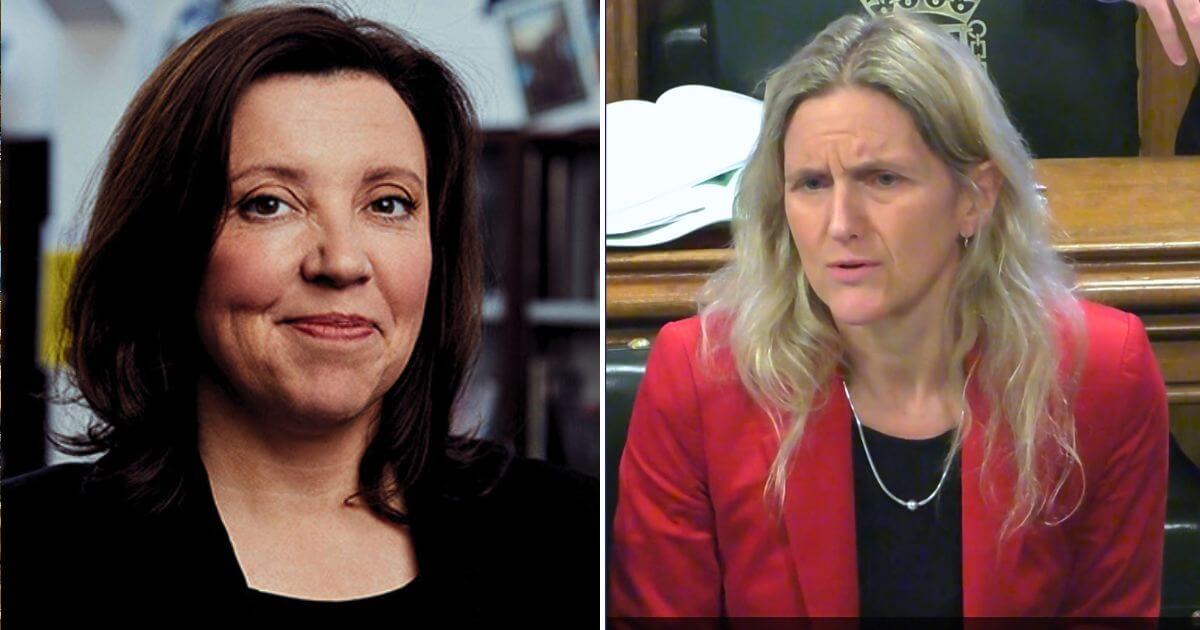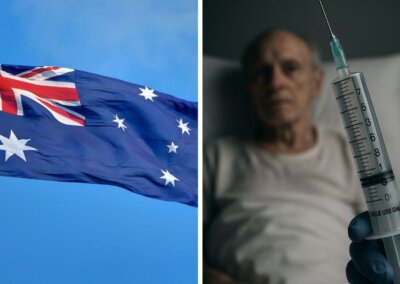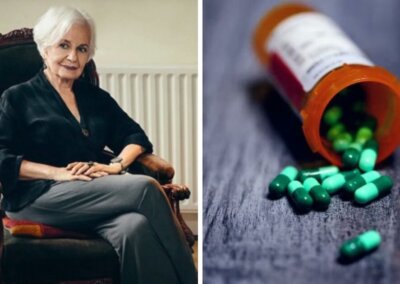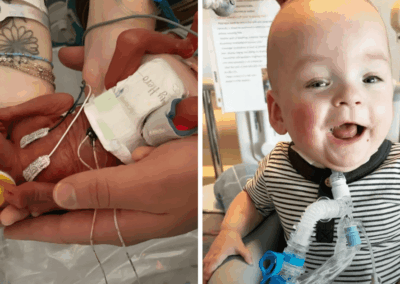The Children’s Commissioner has said it is “deeply concerning” that Parliament has failed to consult under-18s on the issue of assisted suicide at any stage of Kim Leadbeater’s assisted suicide Bill, even though there is nothing in the Bill to prevent doctors from discussing the topic of assisted suicide with children under the age of 18.
Earlier this month, shortly before Report Stage of the assisted suicide Bill, Dame Rachel de Souza, the Children’s Commissioner, complained that the views of children had not been taken into account, saying it is “deeply concerning to me whenever legislation that affects children’s lives passes through Parliament without taking their views and opinions into consideration. Such is the case for the Assisted Dying Bill”.
De Souza published a report that gave children’s views on assisted suicide in the light of Kim Leadbeater’s Terminally Ill Adults (End of Life) Bill. She said “Despite the significance of this potential legislative change, children have not been consulted on it at any stage”.
Need to focus on “supporting people to live, not just to die”
In the foreword to her report, de Souza highlighted the importance of supporting people with illnesses rather than offering assisted suicide, saying “[T]he focus on policy conversations must also be about supporting people to live, not just to die”.
While the assisted suicide Bill applies to adults who are thought to have fewer than six months to live, the Bill does not prevent a doctor from discussing the possibility of assisted suicide with a child aged 16 or 17, in accordance with their professional judgment. During Committee Stage, Daniel Francis MP launched an amendment (319) to ensure that doctors were unable to discuss the topic of assisted suicide with children under the age of 18. However, MPs voted this amendment down by 13 votes to 8.
Some of the young people in de Souza’s report said it can be difficult for doctors to predict how long a patient will live with any accuracy. One girl, 16, said “Sometimes doctors can be wrong […] and if someone is told they have 6 months to live and they actually have a couple of years, I think they’re actually missing out, […] I think it can influence them. It’s difficult to explain”. Another said “[D]octors might be wrong”.
This point was confirmed last year by senior professors of palliative care and oncology, who raised concerns about the ‘impossibility’ of accurately predicting the length of time a patient will survive.
Professor Katherine Sleeman, a specialist in palliative care, told The Telegraph “It is not possible to accurately determine someone’s prognosis as a number of months, say six months or 12 months”.
“As a doctor, patients do ask me, ‘How long have I got left?’ and I would never say, ‘Six months or fewer.’ I might say, ‘Your prognosis is probably measured in months, or “long months”.’ That’s as precise as I would be”.
“When someone has only a few days, or certainly only a few hours left to live, it can be easier to understand with a higher degree of certainty that they’re likely to die within that time-frame. But when we’re getting into the territory of months, it is very, very difficult”.
Baroness Finlay of Llandaff, a former professor of palliative medicine, said “Predicting life expectancy is impossible… I have known people who live well and actively for years after they were thought to have no more than a few weeks to live”.
“I believe that the safeguards are not strong enough”
Concerns were also shared by the young people about the safeguards in the Bill, with one girl, 16, saying “I believe that the safeguards are not strong enough”. This point has also been made by concerned MPs, with Naz Shah, Labour MP for Bradford West, completely disagreeing with Kim Leadbeater’s claims that she has “listened” to evidence to provide effective safeguards to her Bill. Shah commented “when there’s this narrative of ‘we have listened,’ no: that’s not true. The evidence is there in black and white. The biggest changes to the bill… all of these big-ticket items – the ones that have weakened it, in my opinion – have come from the bill sponsor”.
Shah added “[I]t’s just not fit for purpose”.
Particular concerns were expressed regarding people with disabilities feeling pressured to end their lives. A 16-year-old girl asked “I think one of the concerns for me would be one of the people with chronic illnesses. It could be about how society values their life. […] Is life with a disability not worth living? Could there be a pressure [to choose assisted dying] rather than fight for the cure?”.
People with disabilities have raised similar questions. Actress and activist Liz Carr, who described the prospect of legalising assisted suicide in the UK as “terrifying” in her BBC documentary Better Off Dead?, shared her fears about its effect on vulnerable people.
She said “For many disabled people the assumption that we’d be ‘Better Off Dead’ is something that we get used to hearing. We do not believe that any safeguard can adequately protect us from coercion, abuse, mistake and discrimination. We believe that if assisted suicide is legalised, disabled, ill and older people risk being devalued to death”.
Former Paralympian, Baroness Tanni Grey-Thompson told a gathering of parliamentarians and campaigners that she has recently noticed an increase in “low-level discrimination” against disabled people in society, which has “risen remarkably”. She said “I was in central lobby, I came out of a debate the last time we were doing this. Somebody stopped me and said, ‘If my life is like yours, I’d want to kill myself’”.
“So I’m really conscious of all these challenges that exist for disabled people”.
Children must be included in “one of the most profound moral and philosophical debates of a generation”
De Souza called for those under 18 to be heard during the debate, saying the “deep consensus” amongst the children she spoke to was “they must be engaged in this debate, one of the most profound moral and philosophical debates of a generation”. Concerns about children and young people being excluded from the assisted suicide debate were highlighted in written evidence submitted to the Committee by Professor Lorna Fraser, a Professor of Palliative Care and Child Health from King’s College, London.
Professor Fraser said “Given that many children with complex and life-limiting conditions are now living into adulthood, it is naïve to think that this debate is not affecting them”.
She added “Children and young people living with life limiting conditions may see adults in the media that seem to have similar health conditions to themselves. These adults may be making very clear statements regarding their poor quality of life and stating that their life is not worth living. This will have an impact on the children and young people”.
Professor Katherine Sleeman also underlined the relevance of the Bill for children, saying “Many children with complex and life-limiting conditions are now living into adulthood. So this Bill will directly affect them when they turn 18 – or even earlier, as there is no age limit to having conversations about assisted dying in the Bill”.
Call for Leadbeater to listen to young people who see her Bill “will cause significant harm”
Journalist Sonia Sodha praised the young people for their “sophisticated” responses and contrasted this with the approach of the supporters of the Bill, saying “[The report is] filled with nuance, compassion and a level of sophisticated understanding that legalising medically-assisted suicide would come with serious risks that we simply haven’t seen from MPs championing the assisted dying bill that is currently working its way through Parliament”.
She said he marvelled that they “are able to so clearly see something that the bill’s parliamentary proponents apparently cannot”.
“Supporters of Kim Leadbeater’s dangerous bill should listen to young people who see it will cause significant harm”.
Spokesperson for Right To Life UK, Catherine Robinson, said “Dame Rachel de Souza’s report shows us that under 18s are rightly worried about a lack of safeguards for people with disabilities in Kim Leadbeater’s dangerous Bill”.
“Since many people with disabilities already face considerable discrimination and difficulty accessing services, it is little wonder that some are ‘absolutely terrified’ at the prospect of the legalisation of assisted suicide in England and Wales”.
“MPs must listen to these concerns, recognise this Bill is fundamentally flawed and vote it down”.











